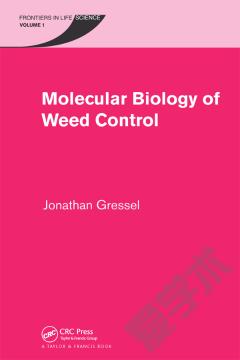Molecular Biology of Weed Control
The vast commercial effort to utilize chemical and molecular tools to solve weed control problems has had a major impact on the basic biological sciences as well as benefits to agriculture, and the first generation of transgenic products has been successful, while somewhat crude. More sophisticated products are envisaged and expected. Biotechnologically-derived herbicide-resistant crops have been a considerable benefit, yet in some cases there is a risk that the same useful transgenes may introgress into related weeds, specifically the weeds that are hardest to control without such transgenic crops. Biotechnology can also be used to mitigate the risks. Molecular tools should be considered for weed control without the use of, or with less chemicals, whether by enhancing crop competitiveness with weeds for light, nutrients and water, or via allelochemicals. Biocontrol agents may become more effective as well as more safe when rendered hypervirulent yet non-spreading by biotechnology. There might be ways to disperse deleterious transposons throughout weed populations, obviating the need to modify the crops.
{{comment.content}}








 京公网安备 11010802027623号
京公网安备 11010802027623号